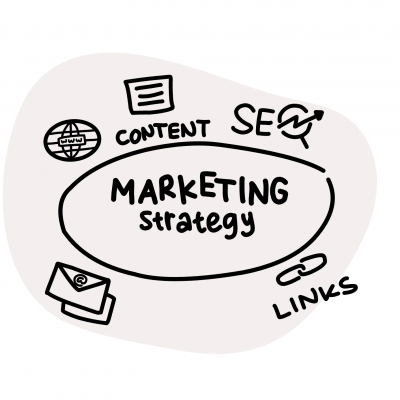
The Future of Marketing: Trends and Technologies in Agency Platforms
To excel in marketing, you need the ability to look in all directions – into the past, present and future. As such, it is easy to feel that you are always struggling to remain relevant in the ever-changing and fickle digital landscape. However, rather than constantly trying to keep an eye on fleeting trends and form your strategy around them, you can use them more effectively to your advantage. There are ways to be more proactive in your approach by using all the tools in your arsenal to ensure that your marketing strategy is geared towards the future as well as the present.
The digital marketing landscape in 2024
Yet, it has to be admitted that this is no easy task. Sadly, there is no crystal ball which can tell us how consumer behaviours may change or how tools and technology may impact habits but we can gain some insight.
Digital marketing is growing more powerful and garnering more attention from both marketers and consumers alike. In fact, according to Google reports, more than 70% of overall marketing budgets are dedicated to digital platforms alone. The question is – how should these increasing budgets be spent to most effectively target ideal audiences and turn them into customers which will boost sales and achieve your business goals.
The benefits of using a digital marketing agency platform
Given that the world of digital marketing has many moving parts, we are seeing a rise in the popularity of marketers turning to a digital marketing agency platform to aid them. Digital marketing has many arms and choosing the right software can make running multi-platform campaigns much easier.
An agency platform can combine the essential aspects of running a digital marketing campaign: a database system, marketing planning and automation, as well as analytics. In one place you can potentially manage your content, ads, emails and review how well they have performed.

Marketing trends agencies should look for
It is often under appreciated how essential it is for marketing agencies to be knowledgeable about recent developments in consumer behaviour and trends in the wider sector. It is equally important to remain aware about the development of various technologies and grasp the way that these new tools may change consumer habits as well as advertising and marketing options. Blending observations about your product, customers and competitors with a comprehension of the wider news and progress in the world of digital marketing, is a reliable way to analyse your strategy and make future-proof improvements.
Data analysis is becoming more crucial
Data-driven decision making (DDDM) is a popular topic for a very good reason. Companies have experienced steady growth by adopting this technique which allows marketers to be more confident in their decision-making and experience phenomenal results.
The idea itself is simple: utilise all data you have available, analyse it and from those findings, implement customer-focused marketing campaigns which are more targeted and therefore more effective. However, it is perhaps easier said than done. This way could mean a fairly substantial shift in your approach and demands regular reassessment of the data at your disposal. The data could be anything from website traffic to social media engagements, anything that gives insight into the wants and needs of your customers. Then, when designing your campaign, you use this information to cultivate a targeted approach that speaks directly to your ideal audience.
Yet, the hard work pays off. Businesses who have adopted this method have seen vastly greater results. PwC conducted a survey of more than 1,000 senior executives and concluded that data-driven companies were three times more likely to experience improvements than those organisations who rely less on data. Insights are priceless and ensuring that you have the data to provide them and support decision making should become a central part of campaign management.
AI-powered solutions
The capabilities of AI for marketing purposes are phenomenal, with the ability to help with various functions from content creation to data analysis. In light of the ever-increasing power of AI tools, Hubspot conducted a survey on the usage of AI by marketing professionals: 64% said they used AI in some way with purposes and levels of integration varying widely. However, only 21% of marketers have AI thoroughly integrated in their workflows.
The use of AI-powered solutions is only set to increase with AI becoming more and more a part of our everyday reality both at work and in our personal lives. AI marketing tools can help craft better copy, predict audience behaviours and process large data sets.
Microsoft’s Co-pilot is set to be a huge innovation in the field of advertising, helping marketers to get the most out of their ecosystem. On their website, Microsoft Advertising offer useful insight into their vision for Co-pilot as well as providing a different perspective on how such software can be used to meet various business goals:
‘It’s getting harder than ever to create leads with marketing content. The platforms and modalities to deliver marketing messages and splintering the audience. Marketing teams must overcome the traditional communications gap between marketing and sales and marketing and product teams to develop a cohesive strategy for success.’
AI development is naturally ongoing but it is certainly something that marketers ought to keep an eye on. This being said though, such technology has its limits and learning how to get the most out of it comes from understanding that.
Voice search is becoming more popular
Voice search technology may have felt like something of a novelty when it first came out and not set to become a fundamental part of the way we search online. However, as time has gone on and systems such as Alexa have become a more common household item, understanding the growing popularity of voice search is critical for marketers. According to eMarketer, 39.4% of people in the US search using a voice assistant at least once a month.
As consumers utilise voice search more often, SEO strategies and keyword research should shift to accommodate for this. We search with greater fluency using natural language patterns when using this technology as opposed to the traditional written search engines. This means that clunky and unnatural sounding keyword optimisations that underpin your marketing and advertising strategy may not be reaching these audiences.

Content is king
Creating original, engaging and valuable content is vital to cut through the noise. To design campaigns that speak to your audience there are many things to be aware of: your message, what content your customer wants to see and what they find valuable, what type of content your customer best engages with as well as general trends and consumer habits.
Many of these aspects are variable and so once again, the most important take-away is to constantly be learning and developing your strategy in line with insights that you might gather from any forms of feedback that you can gather.
Nonetheless, video content is something of an exception with its popularity remaining consistent and its ability to influence and engage only set to grow. However, it is not just Instagram reels and TikTok that you should think about when it comes to video content: Virtual Reality (VR) and Augmented Reality (AR) presenting some of the most exciting innovations. Moreover, Connected TV (CTV) ads, such as on Netflix, are likewise proving to be highly efficacious.
It is quite well known now that with decreasing attention span, short and snappy videos have the capacity to have enormous reach and engagement. Remaining vigilant about the general trends in audience likes and habits as well as ensuring your content is valuable to your customer will go a long way in ensuring that you have successful campaigns.
PPC and SEO will continue to be vital
While PPC and SEO have long been two of the most valuable tools to expand your reach and impact. Targeted advertising to more effectively reach new customers and choosing the right keywords to maximise your performance on search engines is crucial for growth. The importance of SEO can be attested by the increase in hiring experts to help optimise websites. Moreover, ensuring that your paid ads are effective can be a time consuming task: PPC management software can help you to oversee your ads across many platforms.
How can a marketing platform help your agency?
This article began by focusing on how marketers need to be able to look in many directions and by now, you are probably daunted by the volume of topics that have been covered. However, it isn’t as confusing or overwhelming as it may first appear. It is simply vital to make use of the software that can help you and a digital marketing agency platform, such as the Diginius Insight Platform, is one example. Viewing all your data, managing your keywords and giving you the best chance to create that diverse and engaging content in one place can go a long way.
If you’re a marketing agency, head to our website to find out more about our Diginius Agency Partner Program. Meanwhile, if you are a company and you would like our support, discover how our Diginius Insight Platform boosts your ROI.



